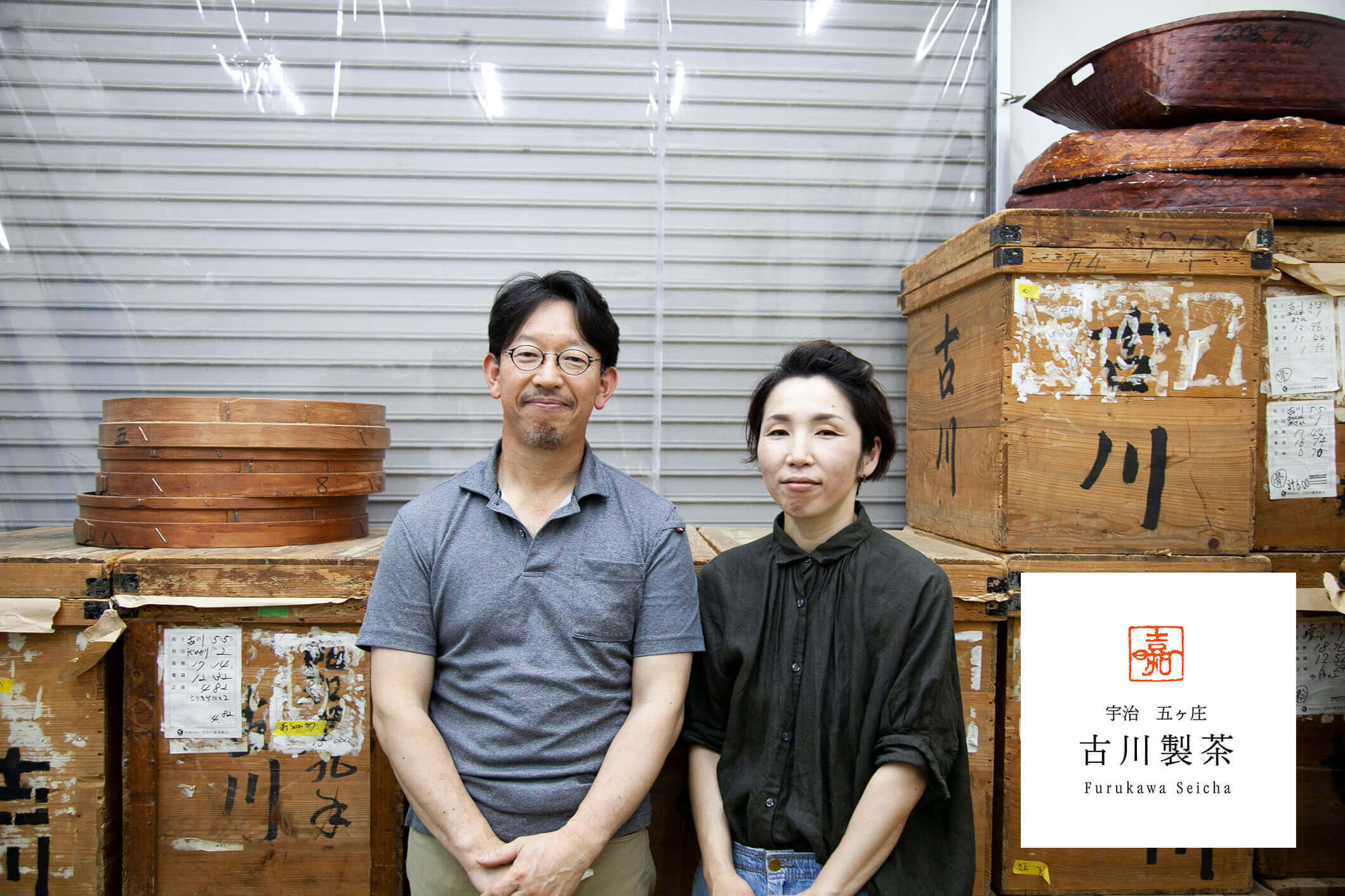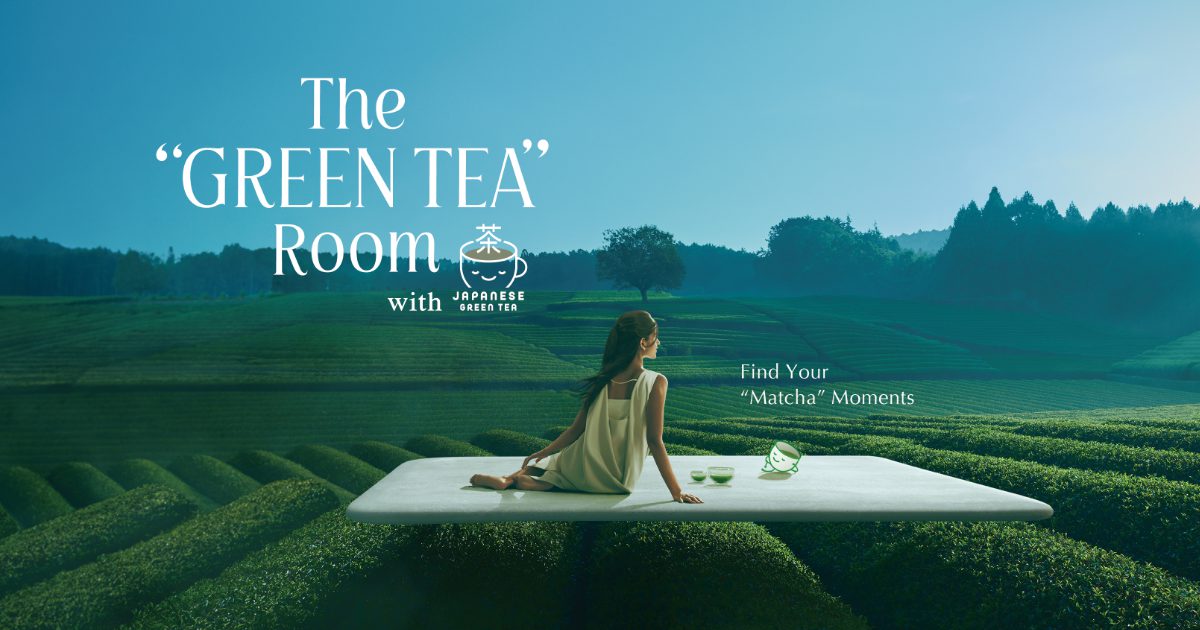The Magical World of Matcha – An Interview with a Japanese Tea Farmer
For Yoshitsugu Furukawa, tea farming is not just his livelihood — it’s his life, his lifestyle, and his passion. Furukawa is the owner of Furukawa Seicha, a Matcha tea farm, in Uji/Gokasho, Kyoto, Japan, which is a renowned Japanese green tea farm town created with the layers of old leaves underneath. He describes it as “a town with a hidden history of Japanese green tea living underneath the farmland.”
Uji, which is said to have been cultivating tea since the 13th century, is famous for an ideal weather for leaves to thrive along with its high quality of soil, that produces the highest quality of Japanese green tea. It's so famous Uji is considered the center of the universe for Japanese tea lovers and people travel from all ends of the planet to visit and indulge in its offerings.
Yoshitsugu drinks Japanese green tea every day to give him peace of mind, gets him ready for his long workday on the farm, and even uses it as a barometer for health. It also gives him an all-important moment of “mushin,” which is the emptying of one’s mind of anger and anxiety and makes oneself more receptive to peaceful thoughts as a journey to simplifying one’s life and mind.
By now, most realize there are many health benefits of green tea, which include boosting metabolism, burning fat, preventing various cancers, and more. But, did you know that Matcha in particular has additional health benefits? Because Matcha has more of a concentration of antioxidants (a single cup of Matcha is equal to about three cups of regular green tea) it is more powerful than your average green tea in helping to fight inflammation, maintain healthy arteries, and promote cell repair.
We sat down with the renowned Furukawa to talk about Matcha, how he uses it as a health report card, how Japanese green tea helps him to simplify his mind, and more…
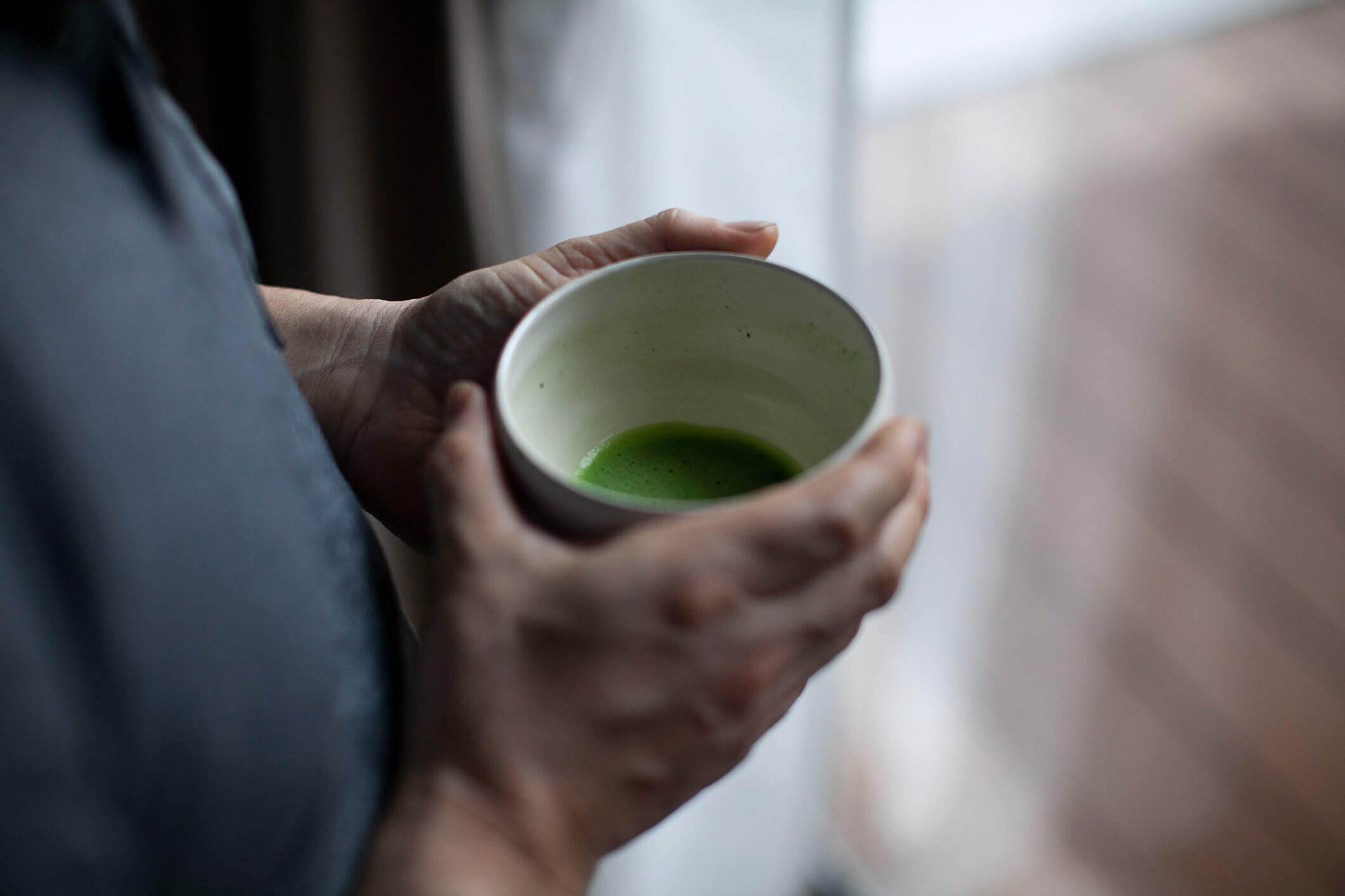
Being on the farm relaxes me as is. But with office work, I can easily get frustrated. So tea does give me a moment for Mushin. It gives a good moment to take a break and switch the mood and surroundings. It gives a moment to organize your thoughts and time to clear your mind.
Matcha becomes a barometer for your health condition. When you are hungover, not feeling the best, or/and having a headache, Matcha tastes different, or sometimes there is no taste, and you realize that’s your body’s condition. The small changes you wouldn’t realize may be noticed by the taste of tea.
Matcha is the ultimate instant drink. It’s the easiest drink to make. You can make good Matcha with one little tool - the “chasen.” [the Japanese word for a Matcha whisk]. Matcha is a great source of amino acid (theanine), vitamin C, catechin, and caffeine. Caffeine gives an energy boost, but the theanine releases tensions.
Pour a little bit of cold water first to turn the Matcha powder into a paste. When you pour cold water first, it dissolves theanine and gives a mild flavor overall. Then, pour hot water and stir to create foam which gives a smooth taste in your mouth.
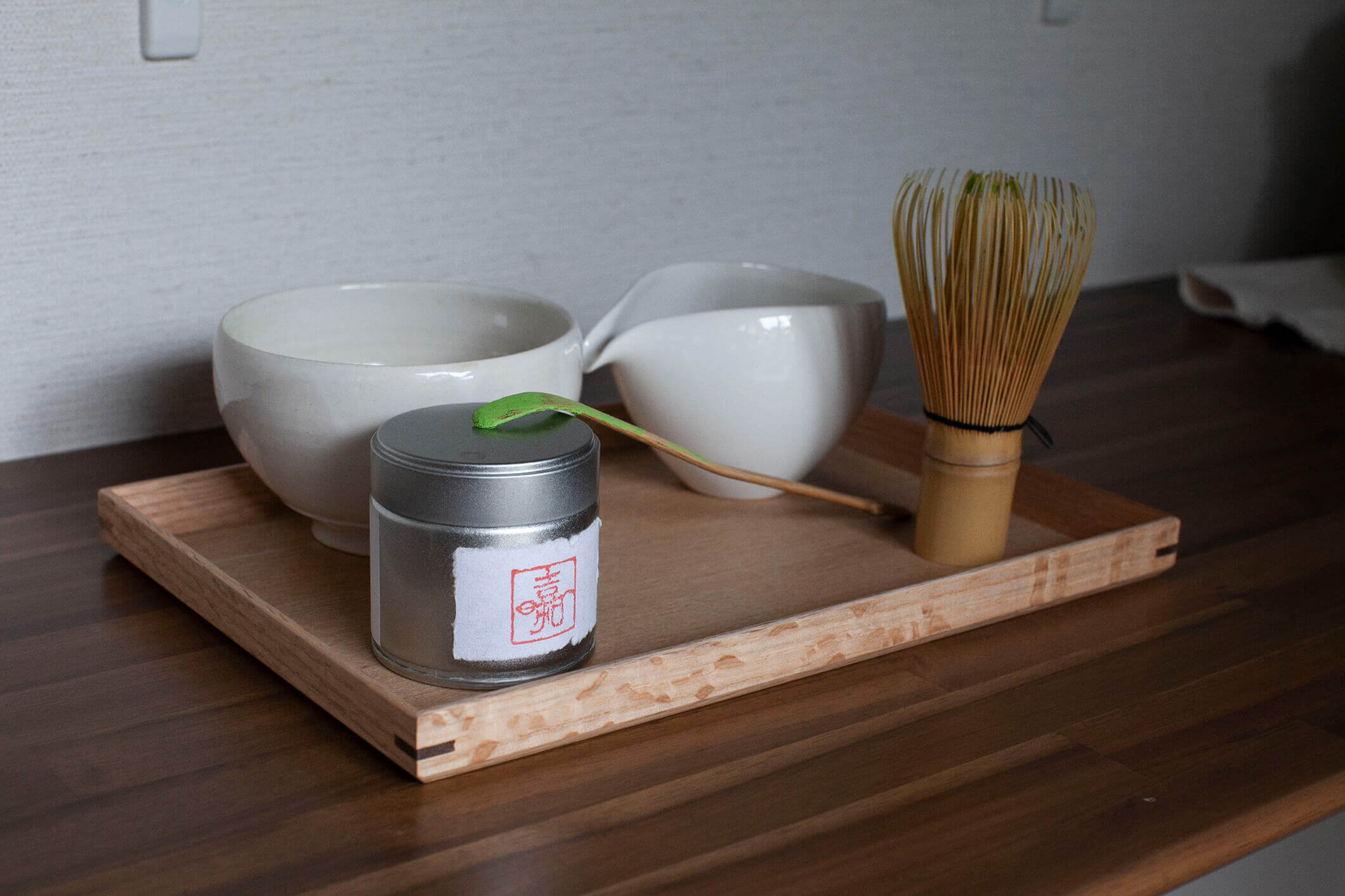
The core and most important part of my job is to make the best leaves. Even if they try to steam it, choose the good quality leaves. If the leaves are not well grown, then it won’t come out to be a good Matcha at the end of the day. So, I want all the consumers to know we put their 100% effort into producing the best leaves for its finished product, Matcha.
Theanine and the amino acid glutamate, which are the main Umami ingredients of teas, are produced in the roots and then retained in the new shoots. When the new shoots are exposed to sunlight theanine is transformed to catechin, which causes the bitter flavor associated with tea. So, we use this honzu cultivation method to cut out the sunlight and grow leaves in shade. It's a time-consuming process because need to build a base and lay reed and rice straw all by hand, but it is important process to balance matcha and achieve umami, limiting bitterness while increasing the amino acid which has a sweet and umami flavor within Matcha. This also provides a unique ambience and atmosphere can be experienced when walking under the shade of a honzu cultivation farm.
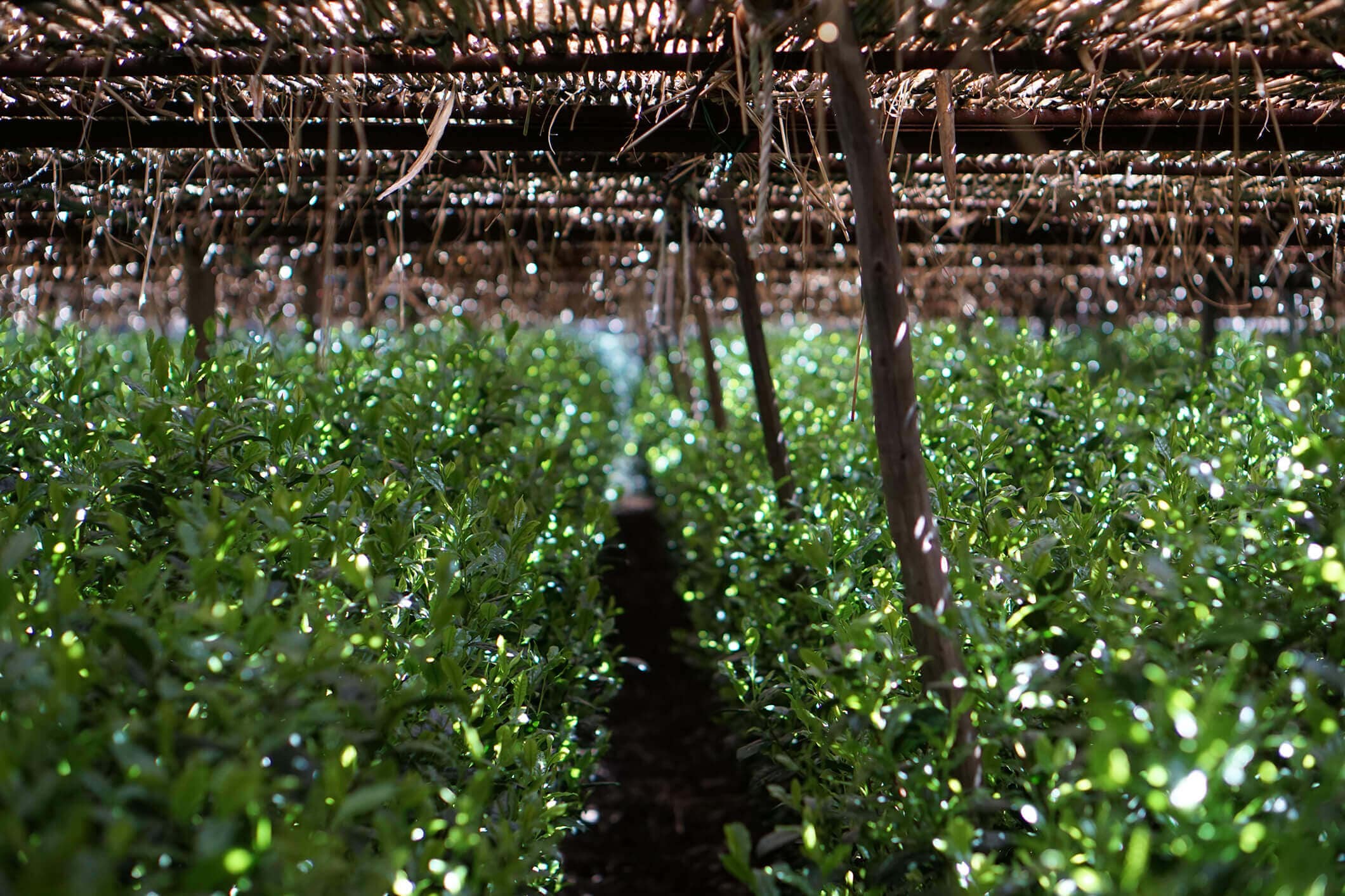
It’s a very sustainable process. Most of the tools are naturally made, like bamboo and wood. Most leaves are produced with organic fertilizers. It is important to use organic fertilizer to “educate” your leaves to be strong enough against bugs. We respect the circle of life and want to keep it as natural as possible. Most of the tea leaves delivered to the brokers are packaged in huge wooden boxes; some of them have been used for over 100 years. All the leaves are allocated in different ranks, but it doesn’t really have any waste as all can be drunk and used at the end of the day.
Rumor has it that Samurai drank Matcha to clear their minds and brought focus before going into battle. It can apply to today’s lifestyle too. Drink it before a work meeting or to get clear-headed before something important or just to start your day with a clear mind.
Check back here next month for more on Japanese green team. Meanwhile, follow our tea journey on social media here: @justteayourself
